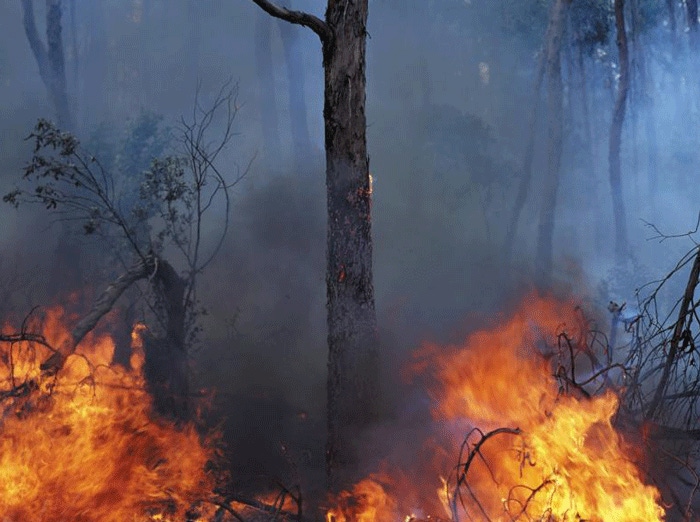August 1, 2011

The North Carolina Forest Service wants to remind people that the ban on open burning put in place June 22 remains in effect until further notice for the following counties: Beaufort, Bladen, Brunswick, Carteret, Columbus, Craven, Dare, Duplin, Hyde, Jones, New Hanover, Onslow, Pamlico, Pender, Sampson, Tyrrell and Washington.
The ban also includes areas of Cumberland and Robeson counties east of Interstate 95.
The decision to keep the burn ban in place is based on the current fire and drought conditions in the southeastern portion of the state.
The N.C. Forest Service is currently working on the mop up and monitoring of more than 40 wildfires in eastern North Carolina. These wildfires require a great deal of resources to ensure they stay within containment lines, reducing the number of resources available for initial attack on new fires.
By North Carolina law, the ban prohibits all open burning in these areas, regardless of whether a permit was issued. The open burning ban means that all burning is prohibited if it is 100 feet or more from an occupied dwelling such as a home or residence.
Many counties are imposing local ordinances prohibiting burning within that 100 feet, so residents should call their local fire marshal before engaging in any burning activities.
The issuance of any new burn permits in the areas affected by the ban has been suspended until the ban is lifted.
People in violation of the burn ban will be assessed a $100 fine plus court costs and are at risk of violating air quality regulations and possible local ordinances. Outdoor burning is also discouraged in areas covered by Code Orange or Code Red air quality forecasts.
Residents in areas where there is no ban on open burning should be careful if they decide to burn pine straw, leaves or other yard debris. In all cases, it is illegal to burn trash, lumber, tires, newspapers, plastics or other non-vegetative materials.
Drought conditions across the state are drying forest fuels and could create hazardous burning conditions. State authorities could impose a ban on open burning on other areas if the drought and increased wildfire activity persists.
The best solution for combating these wildfires is a good soaking rain. Until that time, the North Carolina Forest Service will continue to battle existing fires and any new ones through careful management of resources.
You May Also Like




